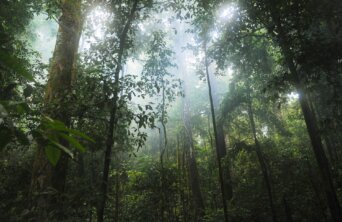- About
- Topics
- Picks
- Audio
- Story
- In-Depth
- Opinion
- News
- Donate
-
Signup for our newsletterOur Editors' Best Picks.Send
Read, Debate: Engage.
| topic: | Good Governance |
|---|---|
| located: | Brazil |
| editor: | Ellen Nemitz |
It has been almost 100 days since Luiz Inácio Lula da Silva took office for the third time as president, after a campaign strongly based on the defence of human rights, the protection of the environment and the improvement of quality of life for the most vulnerable. What has he already done and which points raise concerns?
It is undeniable for those who care about human rights and the environment that the overall face of this government is much more reliable. As already noted by FairPlanet, important leading positions, such as the Minister of the Environment and the Minister of Indigenous Peoples, as well as the coordinator of the National Indigenous Peoples Foundation (Funai), have been successfully granted to three women who are fully committed to the cause. Other departments, such as the Ministry of Health, or of Human Rights and Racial Equity, for instance, are also now led by people whose reputations speak for themselves.
Notwithstanding these important steps, challenges regarding the environment remain: February 2023 recorded a 62 percent increase in deforestation alerts in the Amazon Forest monitored by the National Institute for Space Research (INPE), the worst index since 2016, after a relief in January, when the focal points of destruction had decreased by 61 percent compared to January 2022.
The coordinator of INPE's Amazon Monitoring Programme, Claudio Almeida, told the local outlet ((o))eco that these numbers may represent an inertia, a result from previous policies. "We must remember that the first Lula government began in 2003 and deforestation only began to fall in 2005. There is an inertia in deforestation, [therefore] making it fall will require a lot of strength and persistence," he said.
Another area of attention is health, which has been extensively affected by the former administration’s denialism (mostly observed during the Covid-19 pandemic but also by a conservatism regarding mental health care - a field in which Brazil suffered large setbacks over the past years.
In this sense, the resumption of a robust program to encourage vaccination is a milestone. The media-diffused videos of Lula and the Vice President Geraldo Alckmin receiving booster shots of the COVID-19 vaccine, in opposition to Bolsonaro refusal to be immunised, might represent a comeback to times when Brazilians led the path towards the eradication of some diseases - an achievement threatened by recent government ideologies.
On the other hand, the creation of a bureau specifically designed to take care of therapeutic communities' affairs concern specialists - these institutions usually reproduce an outdated model of mental health care focused on abstinence from alcohol and other drugs, in addition to restrictions of freedom.
"It is paradoxical that a department is created whose specific function is to give support to an asylum device such as the so-called therapeutic communities that, in recent years, have been the target of several inspections [...] pointing out serious human rights violations," reads a note released by the Brazilian Association of Mental Health.
It is certainly too early to evaluate an entire government by just a couple of months, but this period serves to give us a glimpse of the upcoming challenges and flag to the administration what must be prioritised to fulfil the promises made to Brazilians.
Image by Crystal Mirallego

